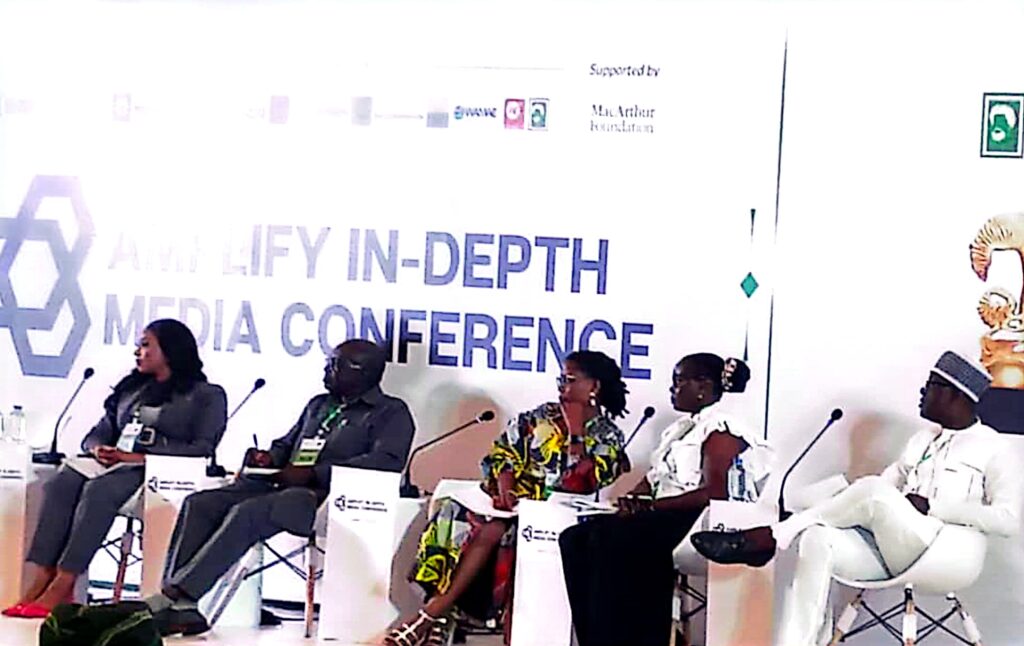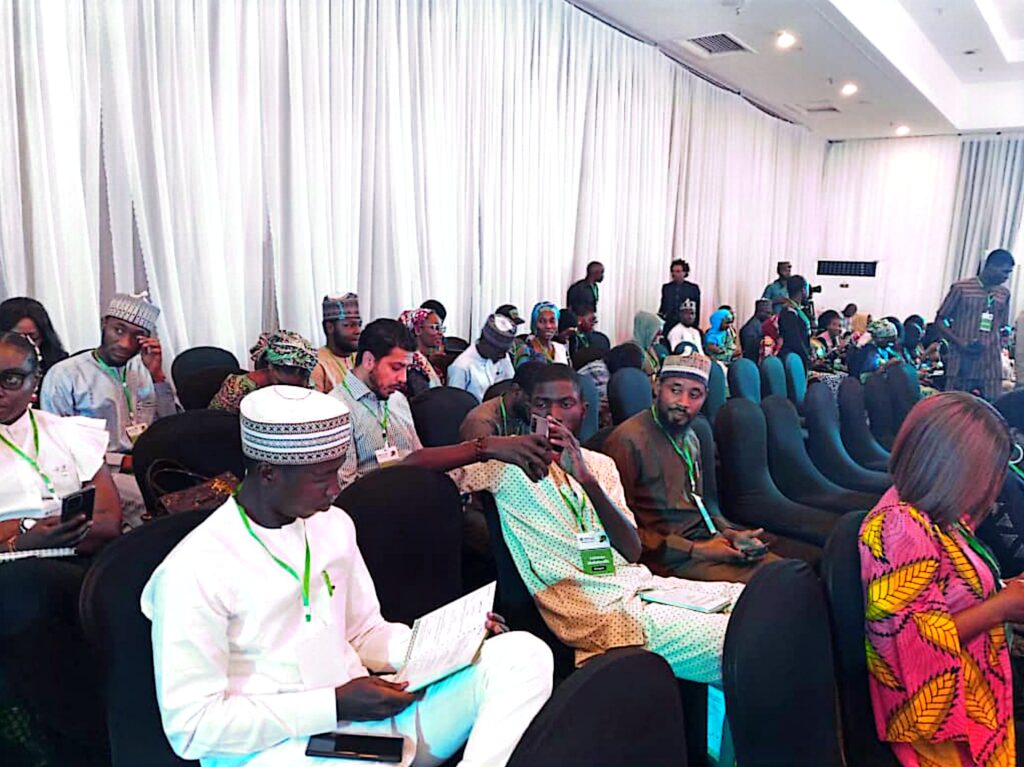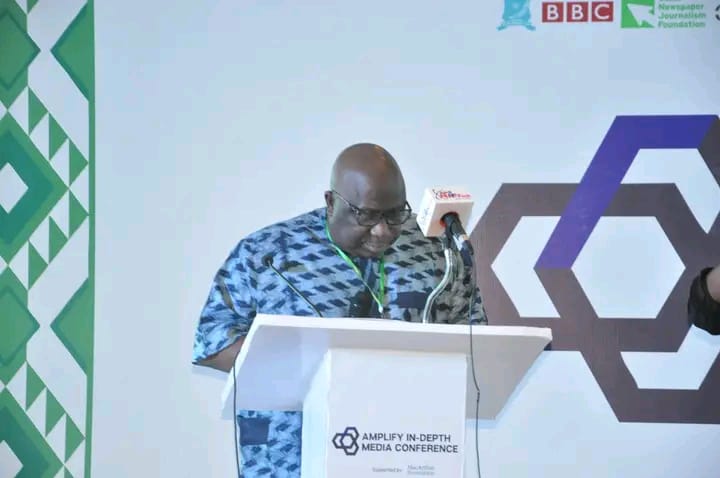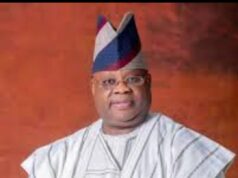The Publisher of Premium Times, Mr. Dapo Olorunyomi, has identified responsive and responsible journalism as necessary ingredient for the promotion and sustainability of democratic system of government.
Olorunyomi disclosed this on Saturday (December 9, 2023) in his address at the Amplify In-depth Media Conference held at Continental Hotel, Abuja

The Premium Times publisher explained that accountability journalism holds significance and positive impact on community well-being, stating that democracy cannot thrive without responsible journalism.
Olorunyomi, who also doubles as the Founder and Chief Executive Director of the Centre for Journalism Innovation and Development (CJID), spoke on the topic “The Independent Media Equation: Policies, Ownership, Technology, and Sustainability” in his keynote address.
According to him, “the actions of journalists have a direct impact on the well-being of communities, and without accountability, democracy is at risk”.
“What sets journalism apart from other professions is its unique accountability quotient, especially within the framework of a democratic society.
“Over time, and across ages, shifts in ownership, technology, sustainability quotient, and policies have always affected the status of journalism and invariably its independence.
“We have thus arrived at a curious historical point in history where we are trying to execute the important project of journalism in an age of artificial intelligence and of democracy building”, he added.
He said that within the digitization of public life, journalism has become a pivotal factor, contributing to the overproduction of information.
According to him, While information is crucial for effective democratic governance, its excess now poses a significant threat to democratic discourse, fundamental freedoms, civility, and the social-political polarization of our community life.
“Ownership, technology, sustainability challenges were in severe tumble, and policies failed to capture the core of the problem”, he added.
Olorunyomi added that for the journalism to overcome its own internal challenge of sustainability and rise to the level of effectiveness to play its true democratic roles it must embrace innovations of its processes, skill sets, and behavioral resources.

Motunrayo Alaka, Executive Director of Wole Soyinka Centre for Investigative Journalism, echoed Olorunyomi’s sentiments during her speech at the conference.
Alaka said that journalists bear the responsibility of holding the government accountable by asking questions and ensuring that the voices of all Nigerians, especially the vulnerable, are heard.
Addressing the evolving landscape of Nigerian media, Alaka stressed the challenges posed by issues such as policies, ownership, technology, and sustainability.
She urged the media to navigate the delicate balance of utilizing technology while addressing its potential for misinformation, which could erode the credibility of the media.
According to Alaka, “The financial visibility of journalism is not optional; it is existential,” urging media outlets to adopt innovative techniques and frameworks to thrive in the ever-changing media environment.
She said that factors beyond independent media, such as policies, ownership, technology, and sustainability, play crucial roles in shaping the future. Despite challenges, there is hope for a positive transformation in the Nigerian journalism landscape for the betterment of democracy.
Mrs. Alaka emphasized that the fourth estate must adeptly navigate the delicate balance of utilizing technology while scrutinizing its intrusive nature and its potential to facilitate misinformation and disinformation, which can significantly erode the credibility of media on an unprecedented scale.
She added that the financial visibility of journalism is not optional, it is existential and media must adopt innovative techniques and explore frameworks that allow it to thrive.
Amina Salihu, Deputy Director of the MacArthur Foundation, shared insights into the foundation’s support for the Amplify In-depth Media program.
She explained the importance of media reporting in fostering a healthy society and urged citizens to actively participate in holding authorities accountable.
She pointed out that it’s not the journalist’s responsibility to both cover the story and persuade; instead, citizens and civil society play a crucial role in that regard.
Mrs Salihu explained the MacArthur Foundation’s commitment to the health, safety, and well-being of journalists, also emphasized the collaborative efforts of citizens and civil society as integral components that shouldn’t be separated.
Speaking on press freedom and freedom of expression, Dina Sabi, Second Secretary of the Netherlands Embassy in Nigeria, highlighted the critical role of a free press in a democratic society.
The conference was supported by 19 organizations and featuring 47 speakers, as a platform for media stakeholders to reflect on the challenges and opportunities facing the media industry.
Ends








